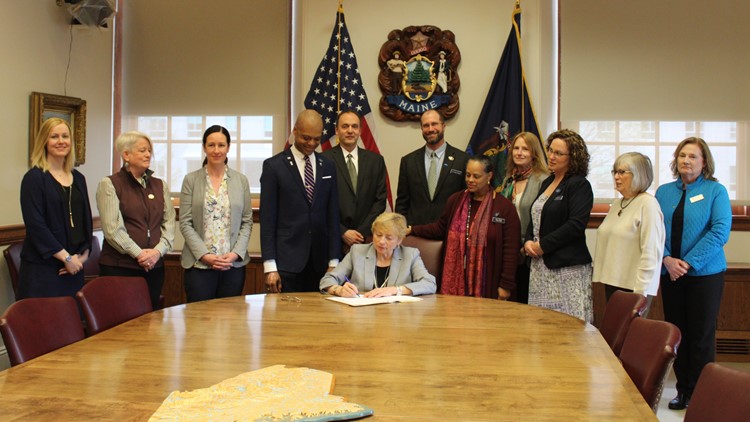AUGUSTA, Maine — Maine legislators and Gov. Janet Mills have passed a bill that is designed to end hunger in Maine by 2030.
On Monday, May 20, Gov. Mills signed bill L.D. 1159, "Resolve, To End Hunger in Maine by 2030", into law after it received support from the House and Senate earlier this month.
The bi-partisan bill was introduced and sponsored by Rep. Craig Hickman (D-Winthrop) and was co-sponsored by Senate President Troy Jackson, Speaker of the House Sara Gideon, and other legislators from Democratic, Republican, and Independent parties.
"Every single night, a quarter of Maine's children go to bed hungry. We can do better," said Hickman in a statement after the bill was passed. "I am so grateful to the Legislature and to Gov. Mills for recognizing that the problem of hunger, food insecurity and malnutrition in Maine will be best solved by the people of the state and the government working together."
Hickman is also an organic farmer and serves as House chair of the Agriculture, Conservation, and Forestry Committee.
The bill is designed to alleviate people in Maine from hunger, food insecurity, malnutrition, starvation, or endangerment of life from lack of access to nourishing and culturally-appropriate food.
In an effort to reach these goals, the bill will direct the Department of Agriculture, Conservation and Forestry to work with other state agencies and invested parties to come together and create a comprehensive, strategic plan to end hunger in Maine by 2030.
The plan should work to collect accurate data to determine specific food and nutrition needs in the state; use existing programs, resources, and staff as much as possible; and make healthy foods more available to struggling parts of the population.
The Department is required to come up with an initial plan by February 2020.
According to the bill, Maine ranks first in New England and ninth in the nation for food insecurity. Additionally, 37 percent of these people in the state who face hunger, food insecurity, or malnutrition do not currently qualify for public assistance.
The entire bill L.D. 1159 reads as follows:



